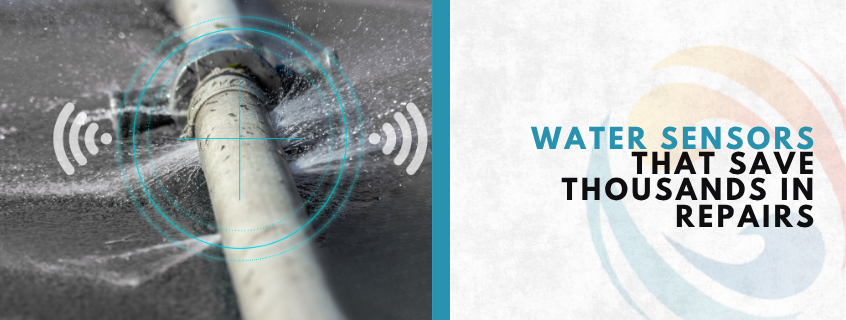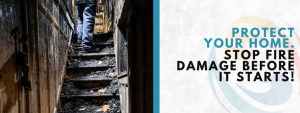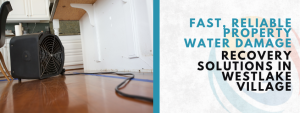
Imagine coming home after a long day, ready to relax. But instead of peace, you hear the dreaded dripping sound. You rush to the laundry room—your washer’s hose has burst. Water is everywhere. Now picture this: what if something had told you the moment the water started leaking? That’s the magic of water sensors. These small gadgets can help you avoid disasters, saving thousands of dollars in repairs and keeping your peace of mind intact.
Need real protection from the unexpected? Discover how to prevent costly home water damage before it starts with the right tools and services.
What Are Water Sensors, and Why Do They Matter?
Water sensors are small electronic devices designed to detect moisture or water leaks in real time. You place them in spots prone to leaks—under sinks, near water heaters, behind washing machines—and they send out alerts if they detect moisture. Some even shut off the water supply automatically.
Why are these so important?
- Most water damage starts small and goes unnoticed until it becomes a big problem.
- Leaks can damage floors, walls, and furniture.
- Mold can grow in less than 48 hours in damp areas.
- Insurance may not cover all water damage, especially if it’s slow and preventable.
Common Areas Where Water Sensors Work Best
Wondering where to put these little lifesavers? Start with the most leak-prone zones in your home.
Here’s a list of perfect places:
- Under Kitchen and Bathroom Sinks
- Next to Water Heaters
- Behind Washing Machines
- Basements
- Near Dishwashers and Refrigerators
- Under Toilets
Using these spots ensures early detection, which can mean the difference between a quick mop-up and a full-blown renovation.
Different Types of Water Sensors and What They Do
Not all are the same. Depending on your home’s needs, you can choose from simple to high-tech versions.
Let’s break them down in this description list:
- Basic Contact Sensors
- Smart Wi-Fi Sensors
- Automatic Shut-Off Sensors
- Sump Pump Sensors
- Humidity and Temperature Sensors
Each of these plays a unique role, and some homes benefit from a mix of different types.
Real-Life Examples: How Water Sensors Save Money
Without Water Sensors:
- A washing machine hose leaks overnight.
- The floorboards soak up the water.
- Mold sets in after two days.
- Total cost: Over $5,000 in floor replacement, mold cleanup, and plumber fees.
With Water Sensors:
- Same hose leak.
- The sensor sends an alert the moment water touches the floor.
- The homeowner shuts off the valve and calls for help.
- Total cost: $100 for a plumber visit and cleanup towels.
If you live in areas like Manhattan Beach, you’re even more prone to coastal humidity and hidden leaks. Here’s a detailed guide on professional Water Damage Restoration Manhattan Beach to learn how a quick response saves big costs.
How to Install Water Sensors in 5 Simple Steps
You don’t need to be a tech expert or a plumber. Installing is easy.
- Pick Your Locations
- Unpack and Power On
- Connect to Your App (for smart sensors)
- Place the Sensor Flat
- Test It
Now you’re protected! Maintenance is also simple—just check batteries every few months.
Top Features to Look for When Shopping for Water Sensors
There are many models out there, but some features stand out. Here’s a helpful table to guide your purchase:
| Feature | Why It Matters |
| Wi-Fi or Bluetooth | Sends alerts to your phone in real-time |
| Battery Backup | Keeps working during power outages |
| Smart Home Integration | Works with Alexa, Google Assistant, or Apple HomeKit |
| Loud Audible Alarm | Useful when you’re home but not near your phone |
| Compact Size | Easy to place in tight spaces |
| Long Battery Life | Reduces maintenance |
| Multi-Room Monitoring | Covers more of your home efficiently |
Avoid These Mistakes When Using Water Sensors
Even the best water sensors won’t work well if they’re not used correctly. Keep these tips in mind:
- Don’t skip high-risk areas
- Don’t forget to test them
- Don’t ignore alerts
- Don’t rely only on one type
Avoiding these common mistakes ensures your water sensors protect you fully.
Cost of Water Sensors vs. Cost of Water Damage
People often ask: “Are water sensors worth the money?” Let’s do a quick comparison.
Estimated Average Costs:
- Basic Water Sensor: $15 to $40
- Smart Sensor with Shut-Off Valve: $100 to $300
- Complete Home Setup: $250 to $800
Now compare that to:
- Burst Pipe Repair: $500 to $1,500
- Floor Replacement: $2,000 to $10,000
- Mold Remediation: $1,000 to $7,000
- Hotel Stay During Cleanup: $500 to $2,000
Still wondering if it’s worth it? Take a look at full-service water damage restoration solutions that can guide you through both prevention and recovery.
Can Water Sensors Help Lower Insurance Premiums?
Yes—some insurance companies offer discounts if your home has preventive systems like smoke alarms, security cameras, and water sensors.
Ask your provider:
- Do you offer a discount for leak detection systems?
- What types qualify?
- Do I need to show proof of installation?
Why Every Homeowner Should Take Action Now
Waiting until you experience water damage is like locking your doors after a break-in.
Here’s a quick reminder checklist:
- Identify leak-prone areas
- Choose the right type of water sensors
- Install and test them
- Set up alerts on your phone
- Update your insurance provider
Already had a past incident or want to prepare better? This expert guide to protecting your home from future water disasters is a great place to start.
Final Thoughts: Small Sensors, Big Protection
We all have locks for security, smoke detectors for fire, and now, water sensors for water safety. These small devices might seem minor, but they carry a huge responsibility. They’re there when you’re not. They’re watching when you’re asleep. They speak up when water starts to creep.
Protecting your home from water damage doesn’t have to be hard or expensive. With water sensors, it’s simple, smart, and safe.So the question isn’t if you need them—it’s how soon can you get them set up?
Frequently Asked Questions About Water Sensors
How do I know where to place water sensors in my home?
Focus on high-risk areas like under sinks, behind washing machines, near water heaters, and in basements. These are common spots where leaks start and often go unnoticed.
Can water sensors prevent major water damage?
Yes, by detecting leaks early and sending alerts, water sensors give you time to act fast. Some models even shut off the water automatically to stop the damage.
Do I need Wi-Fi for my water sensors to work?
Only smart water sensors need Wi-Fi to send alerts to your phone. Basic models still detect leaks but don’t send notifications remotely.
Will installing water sensors lower my home insurance premium?
In many cases, yes—some insurance companies offer discounts for leak detection systems. It’s best to check with your provider and ask about qualifications.
Are water sensors hard to install by myself?
Not at all—most water sensors are plug-and-play and require no tools. You can usually set them up in under 10 minutes with a quick test to ensure they’re working.





